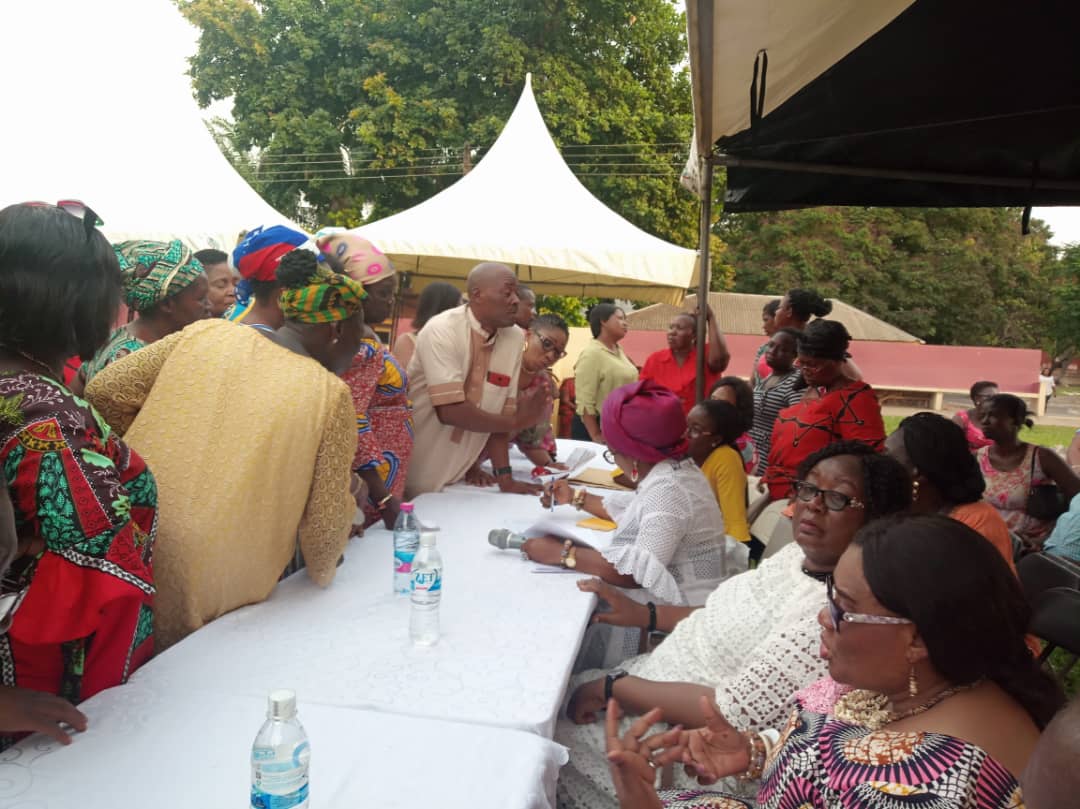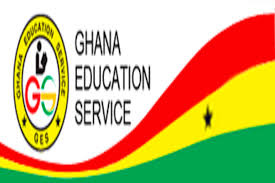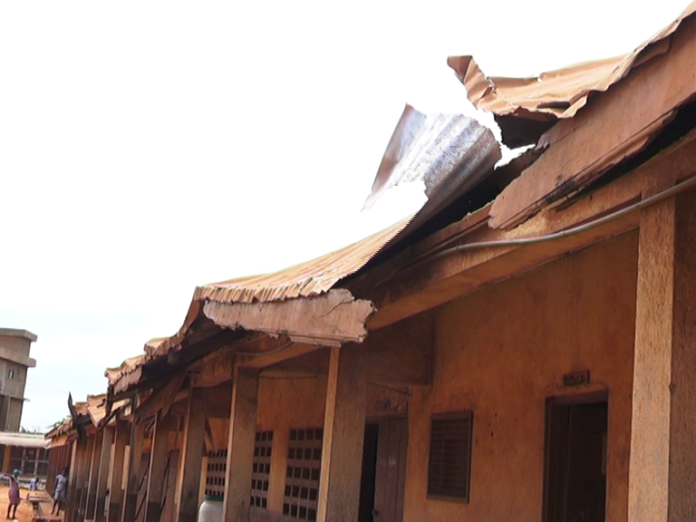A/R: Gender Minister audits school feeding caterers in Kumasi

Minister for Gender, Children and Social Protection Madam Cynthia Mamle Morrison has engaged all Ashanti regional caterers acting as service providers under Ghana School Feeding Program (GSFP).
The Honourable minister’s tour to the region hence her meeting with the caterers was to carry out an audit exercise on the recorded data per the number of registered caterers and the number of school feeding slots allotted to each service provider in the region and effect the necessary corrections.
This move by the honourable minister was conducted to address some challenges which for some time now have characterised the program.
Lapses including underpayment, over payment and delayed payment according to authorities have imposed an adverse constrain on the smooth running of the program.
School feeding slots currently run by a number of caterers in the region according to information picked by this journalists exceeds the officially recorded number and has affected the even disbursement of funds.
Service providers belonging to this category at the blind side of the ministry enjoy excess payment whiles other caterers do not receive the exact fund equivalent to their slot.
Public Relations Officer for the Ministry
Master David Essandoh in an exclusive interview with this journalist said that the exercise will be carried out in the remaining regions in their attempt to eliminate the challenges confronting the program.

Source: Thepressradio.com / Enock Akonnor





